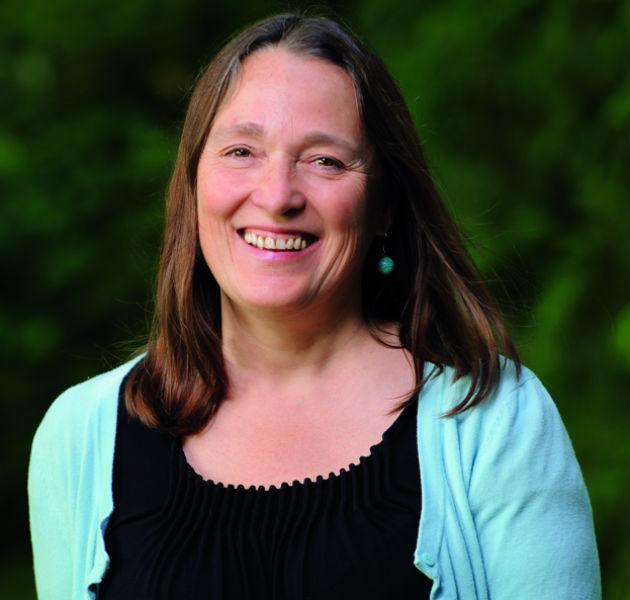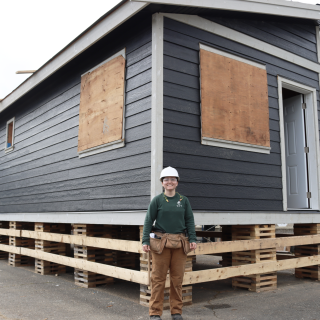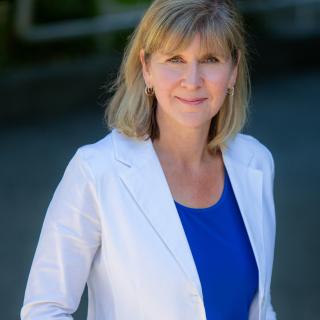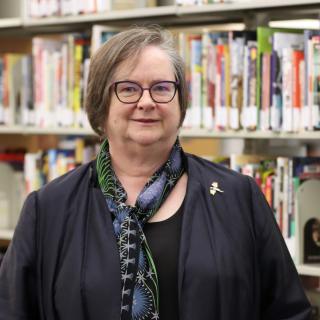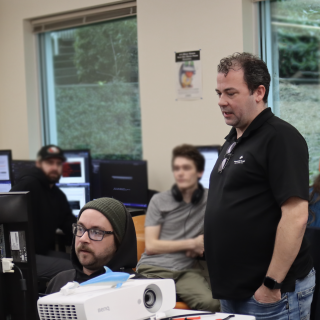Patricia Erb, survivor of the “Dirty War” in Argentina and presently the Executive Director of Crossroads International, will receive an Honorary Doctorate of Laws for her efforts to give a voice to the disappeared and disadvantaged.
As one of the only survivors of the infamous Campo de Mayo, the site of the genocide and kidnapping of over 30,000 people during the de facto military dictatorship in Argentina in the late 1970s and early ʾ80s, Patricia Erb has since committed her life to giving a voice to the disappeared.
“Thanks to the courageous efforts of my family and many people I will never know, I was released,” says Erb. “For the last 40 years, I have dedicated my voice to the thousands who never reappeared and I have pledged to continue their efforts to build a better world.”
Vancouver Island University (VIU) will recognize Erb’s social activism efforts in the pursuit of giving a voice to the silenced during its morning convocation ceremony on Tuesday, June 4 where she will receive an Honorary Doctorate of Laws.
Born in the United States and raised in Argentina, Erb grew up with the understanding of the social and economic differences between her two worlds. On a trip through Bolivia, she was confronted with extreme poverty when during her short stay, three children died of measles.
“I thought, ‘How was that possible?’ When I got the measles, I got to stay home from school – it was great,” says Erb. This is when she realized the dire impacts lack of access to basic human needs such as vaccines, good nutrition and clean water has on children. This experience awakened the social activist in Erb.
The years following are a string of memories blurred together. Erb remembers the marches and demonstrations to speak up for change, and the worried faces of her parents as they began to recognize how dangerous her activism had become. It was becoming increasingly common for civilians associated with socialism, left-wing Peronism or the Montoneros Movement to go missing as the military junta gained momentum in Argentina.
On September 13, 1976, a group of men armed with guns kidnapped Erb to transport her to Campo de Mayo, where she would be imprisoned for the next four weeks.
“Compared to some, my time at the camp was relatively short, but the torture and inhumanity I was exposed to will last a lifetime in my mind,” she says.
It was her family’s connections to North America that saved her, and initially she carried that privilege with her as guilt that kept her feeling ashamed and silent.
“I was disappeared by the regime because of my commitment to justice and equality and here I was free due to the accident of birth, and not because I was more or less involved in the struggle than those who died,” she says. “My challenge was to share my story and the story of those silenced.”
Finding courage within her resiliency, Erb vowed to use her voice to speak up for those who can no longer share their own stories.
She helped successfully lobby the United States Congress to withhold military aid to Argentina. After the dictatorship ended, she testified at the truth and reconciliation hearings and in court for those who were silenced. Erb has witnessed the healing power and understanding that can emerge from initiatives such as the Truth, Justice and Memory Movement in Argentina, and she is an avid supporter of Canada’s truth and reconciliation movement for Indigenous and non-Indigenous peoples because of this.
“The search for truth, justice and memory can be a painful one and it is never easy work, but I have seen the rewards,” she says. “As we build our programs in Canada we must be committed to creating strong partnerships based on the recognition of the rights of Indigenous peoples as protected by the Canadian Constitution, the Treaties and the United Nations Declaration on the Right of Indigenous Peoples.”
Erb has worked extensively on issues of decolonization and cultural preservation with Indigenous Peoples in Latin America and Canada.
“Her efforts to bring to the forefront the stories of resiliency and truth of Indigenous peoples has helped create a better future of understanding and compassion between Indigenous and non-Indigenous peoples,” says Dr. Ralph Nilson, VIU President and Vice-Chancellor.
For 30 years, Erb worked with Save the Children, an organization dedicated to improving the lives of children through education, health care and economic opportunities. She took on the role as President and CEO of the Canada chapter in 2011 until the end of 2017.
“Erb was responsible for leading a comprehensive reorganization of Save the Children country offices in Africa and Latin America in a successful effort to streamline administrative structures, improve project management and adapt to a changing and demanding international donor environment,” says Dr. Philip Oxhorn, VIU Dean of International Education. “Social innovation has been a driving force in all her work.”
Erb has served as a board member for 27 non-governmental organizations including as President of the Board of Directors of Defense for Children International Bolivia Chapter, the largest chapter in the world; member of the International Advisory Board of the McGill Institute for the Study of International Development; and Board Member of the Humanitarian Coalition.
After 40 years working in the NGO sector, Erb has launched a new venture as a consultant for non-profits. She plans on sharing her deep experience with organizations in Canada and Latin America. She continues to work on reconciliation at a continental level and is a sought-after lecturer on human rights, reconciliation and collaborative leadership. She is currently the Executive Director of Crossroads International, a leading cooperation agency focused on advancing equality for women and girls.
“When I disappeared, I learned that human beings are often endowed with great resilience, and that our humanity is not easily crushed even in the worst conditions,” says Erb. “Women and youth are among the most vulnerable to endure injustices against them – and yet, I know they carry that great resilience within them to overcome any challenge. Together, we can break the cycle of poverty and inequality so everyone can live in a world where our basic human needs are met.”
-30-
MEDIA CONTACT:
Rae-Anne Guenther, Communications Officer, Vancouver Island University
P: 250-741-6673 l C: 250-619-1088 l E: Rae-Anne.Guenther@viu.ca | T: @VIUNews

